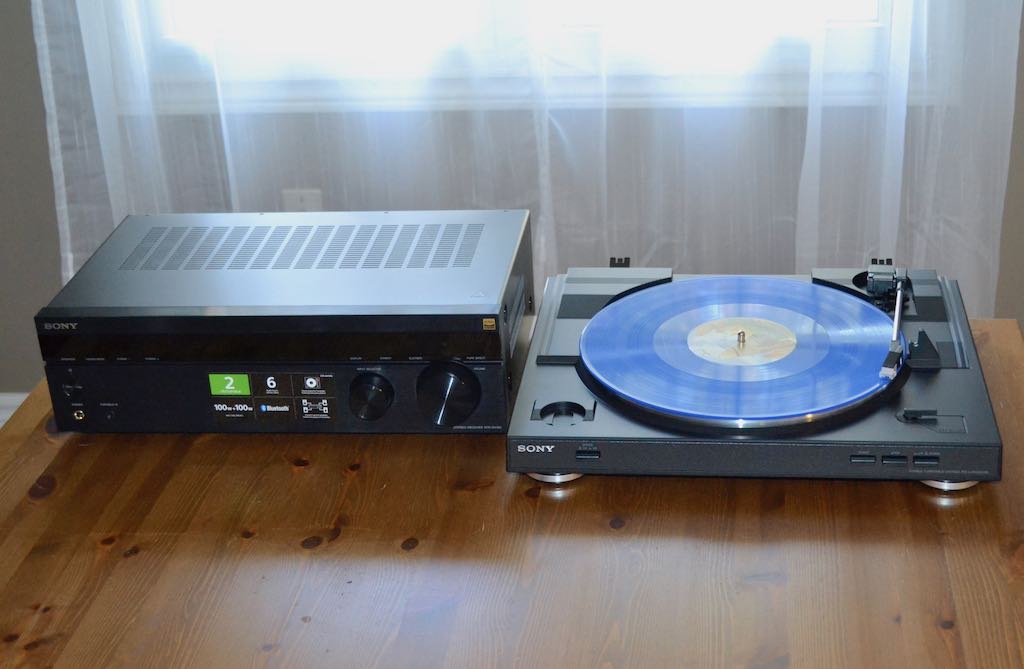
Whether you’re in the early stages of becoming a vinyl collector or rediscovering an old collection you had stashed in the basement, it probably doesn’t make sense to invest thousands of dollars in an audiophile grade turntable. You want to be able to enjoy the analog audio goodness, but all you really need is a basic turntable. One route to go is the always popular record player-in-a-suitcase. That form factor has limitations, though. As retro cool as those look, I prefer a standalone turntable and that’s what I recommend to friends who want to get into playing records. Sony offers a very affordable option in the PS-LX300USB, an entry-level turntable I’ve been testing over the past few weeks.
Setting up Sony PS-LX300USB is easy
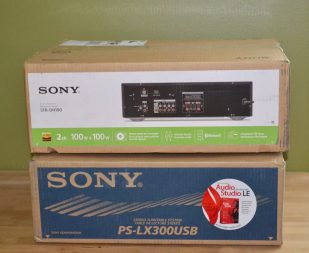
One of the reasons people opt for the suitcase or all-in-one record player sound system is ease of setup. I can understand that. Setting up a turntable can be confusing and a little overwhelming, especially if you’re not comfortable with the process.
The sheer number of YouTube videos showing how to properly balance a tone-arm, adjust the counterweight to set the correct tracking force for a cartridge, and how to set anti-skate force shows that many of these tasks often require guidance to do properly.
With the Sony PS-LX300USB, setup couldn’t be easier. Literally, the only thing you need to do is install the belt and platter, and Sony makes this very easy. There’s a ribbon around the belt (which comes already mounted on the platter) and a cutout in the platter that corresponds with the drive pulley. Simply set the platter on the spindle, pull the belt over the pulley using the ribbon, then remove the ribbon. It takes five minutes from the box to being ready to spin.
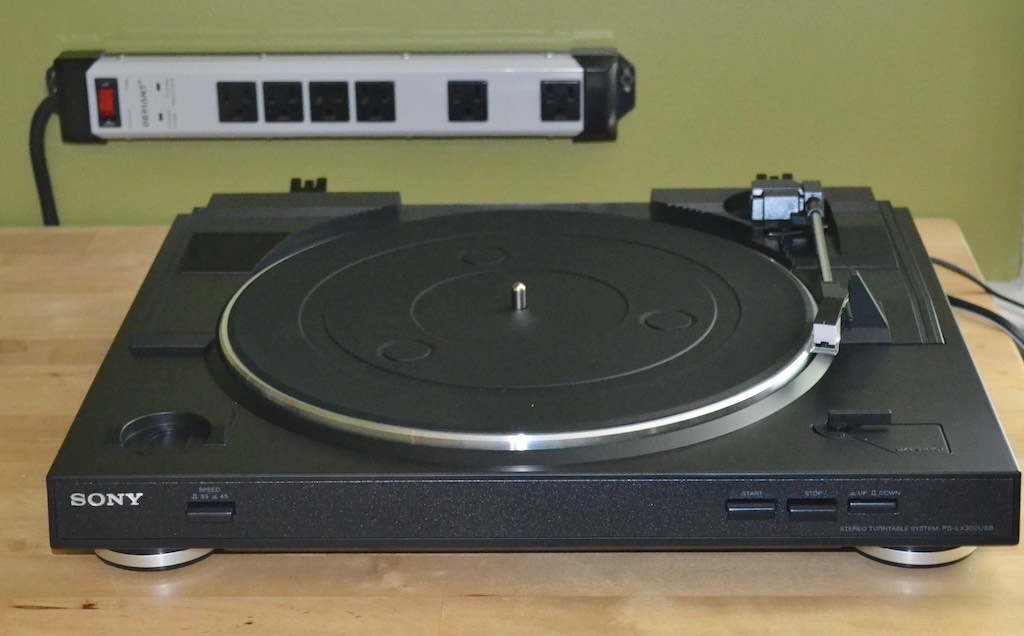
Sony PS-LX300USB: transfer records to MP3
The Sony PS-LX300USB is flexible in terms of connectivity. There’s a USB output port (as suggested by the name) that lets you connect to a PC. Sony even includes Sound Forge Audio Studio software that makes it easy to copy your records onto the PC as MP3s—this package is for Windows only.
 It features an integrated pre-amplifier. Switch the output to Line and you can connect directly to any audio system or portable speaker with a 3.5mm audio input. Unless the system has dual RCA inputs (most portables don’t) you’ll also need to invest in an RCA to 3.5mm adapter, like this one.
It features an integrated pre-amplifier. Switch the output to Line and you can connect directly to any audio system or portable speaker with a 3.5mm audio input. Unless the system has dual RCA inputs (most portables don’t) you’ll also need to invest in an RCA to 3.5mm adapter, like this one.
The turntable also offers traditional Phono output for connecting to a receiver. And Sony sent one along …
Pairing the turntable with Sony STR-DH190 receiver
Sony’s STR-DH190 receiver is a great partner for this turntable. It’s a two-channel model with 100 watts per channel of output, designed to deliver high-quality music playback. And it offers a dedicated Phono input, including a ground (although this particular turntable doesn’t require a ground wire). There are inputs for an additional four analog devices so you can connect a CD player or even your TV—so long as you’re okay with not having surround sound. Compared to a home theatre receiver, the inputs on this receiver are utter simplicity.
In a nod to today’s digital, streaming world, it has Bluetooth support so you can stream music using your smartphone.
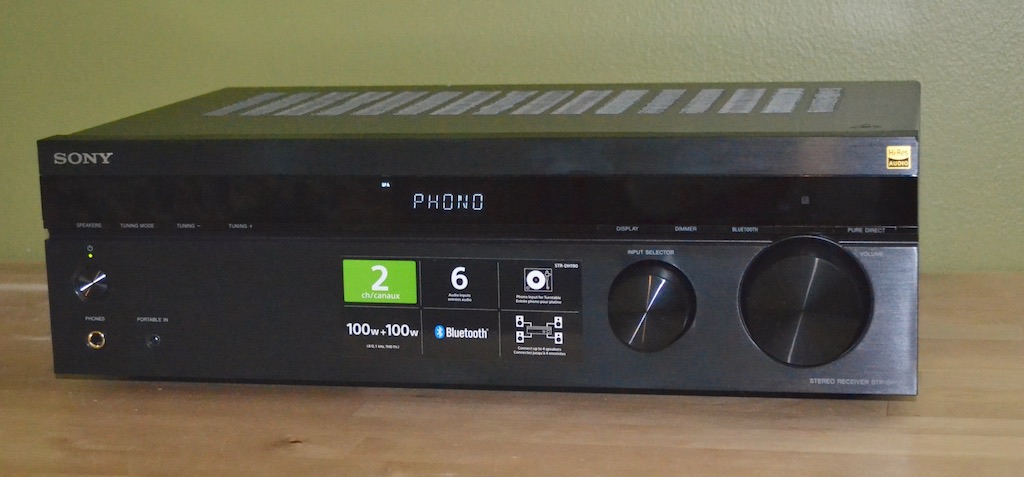
All you need is a pair of speakers, the turntable, and you have a high performance old-school audio system that also happens to support music streaming. If you decide to upgrade to a more capable turntable at a later date, the STR-DH190 receiver stays. It offers the performance to complement virtually any turntable.
Music quality with PS-LX300USB turntable & STR-DH190 receiver
The combination of the PS-LX300USB turntable and STR-DH190 receiver offers high quality audio. The turntable’s output lacked the dynamic range of more expensive models, but it still sounds pretty good and offered that analog vinyl warmth that record fans are after, especially when played through the STR-DH190 receiver. The end result does depend on the speakers you use (I had a pair of inexpensive bookshelf speakers), but I can guarantee you, it will blow away anything a record player-in-a-suitcase can produce.
Sony PS-LX300USB key specs
|
Sony PS-LX300USB is ideal starter turntable
There are several giveaways that mark the Sony PS-LX300USB as an entry level turntable. Weight is always a good indicator. Metal components, heavy platters and a thick deck to reduce resonance means a high end turntable can easily weigh 15 or 20 pounds. This one weighs 6 pounds (2.7) kg. The platter is metal, but it’s thin. The deck and many components are plastic. The cartridge is integrated into the tonearm and not replaceable, and there is no counterweight or anti-skate control. The RCA cable is integrated, so it can’t be replaced.

None of this means the Sony PS-LX300USB is a bad turntable, that’s not the impression I’m trying to give. It’s just setting expectations. This is a very capable, entry level turntable, but its performance and features don’t compare to more expensive models.
Is Sony PS-LX300USB a good choice?
That’s the big question. As I mentioned in the intro, I usually recommend that someone who’s dipping their toes into the vinyl pool start with an entry level turntable instead of an all-in-one record player. The cost is similar—especially if you choose one with a pre-amp and already have a receiver or speaker to connect it to. You’ll almost always end up with better audio quality. The Sony PS-LX300USB is well worth considering in that capacity. It offers decent quality audio and handy USB output. If you want a beginner turntable that can be upgraded over time, skip this one, though. The integrated cartridge, lack of counterweight and lightweight components mean you won’t be able to do much to boost its performance.

Whether you’re looking for a portable record player, a first turntable, or a stunning audiophile masterpiece to play your vinyl, Best Buy has a huge selection of turntables to choose from.

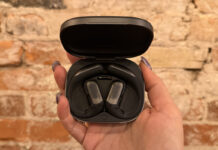


A few months ago in order to get back into playing records I purchased this combo. I did so after a long laborious time in which I went over cost and specs. The result: much as described in this video.
The properties of the receiver are obvious except for the FM reception which was terrible. This was primarily due to the supplies and dedicated antenna. Bye pass that using you smart phone as the receiver and pairing it with the receiver.
The turntable is a misunderstood bargain. Because of the permanently attached magnetic cartridge (which is a decent cartridge) the antiskip, balance, and tracking are factory set. And, one may upgrade the stylus, as I did to an elliptical, carbon needle.
Combined, these components send a good signal to my Polk Audio T15 Bookshelf speakers. The speakers are rather small, but produce very good sound. And since my room is small, all is well.
So, yes this beginner’s combo gets my vote. And I’m not really a beginner. Thirty years ago I was an audiophile. I have some experience in these matters.
Comments are closed.